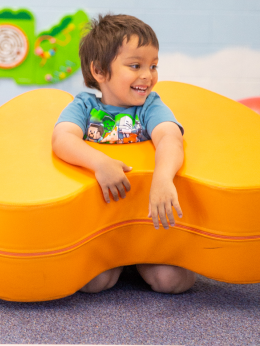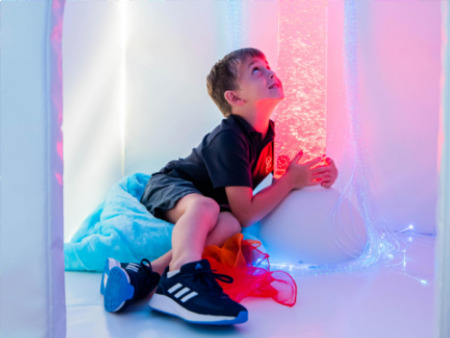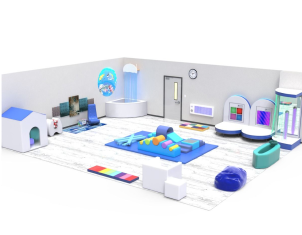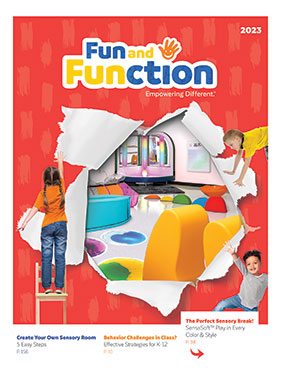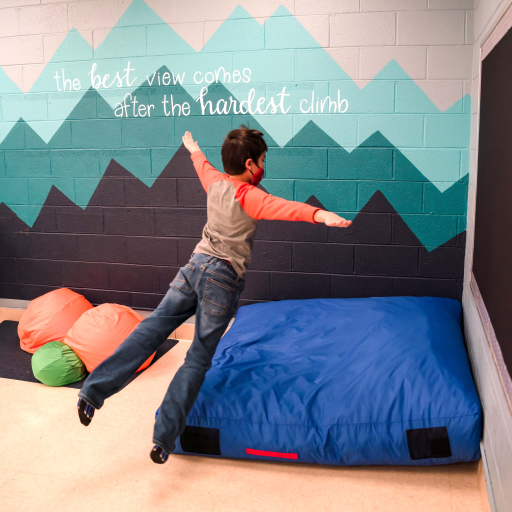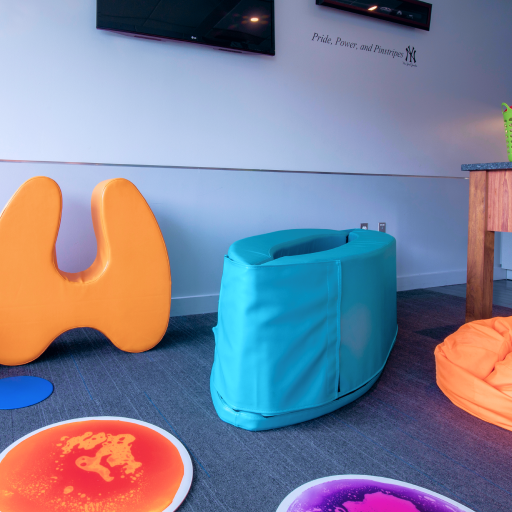Case Study:
Noah's
Sensory Gym
A home sensory room-
for now and in the future


The Background
Noah is an adorable 4-year-old boy who
struggles with sensory challenges. His dedicated
mom, Melissa Rufus, came to Fun and Function
with a generous budget of $20,000 to create a
sensory room in their Ohio home.

The Vision
To transform a basement room into a bright,
friendly and durable sensory space that would
provide Noah with the sensory stimulation he
craved as well as a place to unwind and regulate
himself.
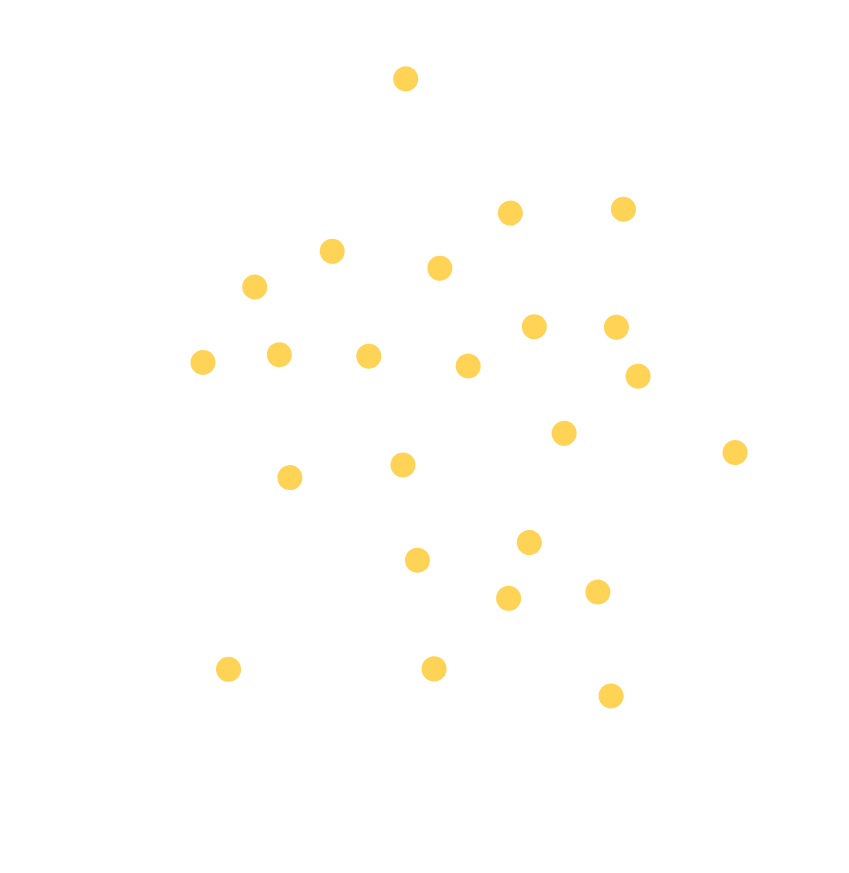
The Challenge
Building a room that would grow with Noah
throughout his childhood development. This
room would need to serve Noah’s needs and
engage him for many years to come.

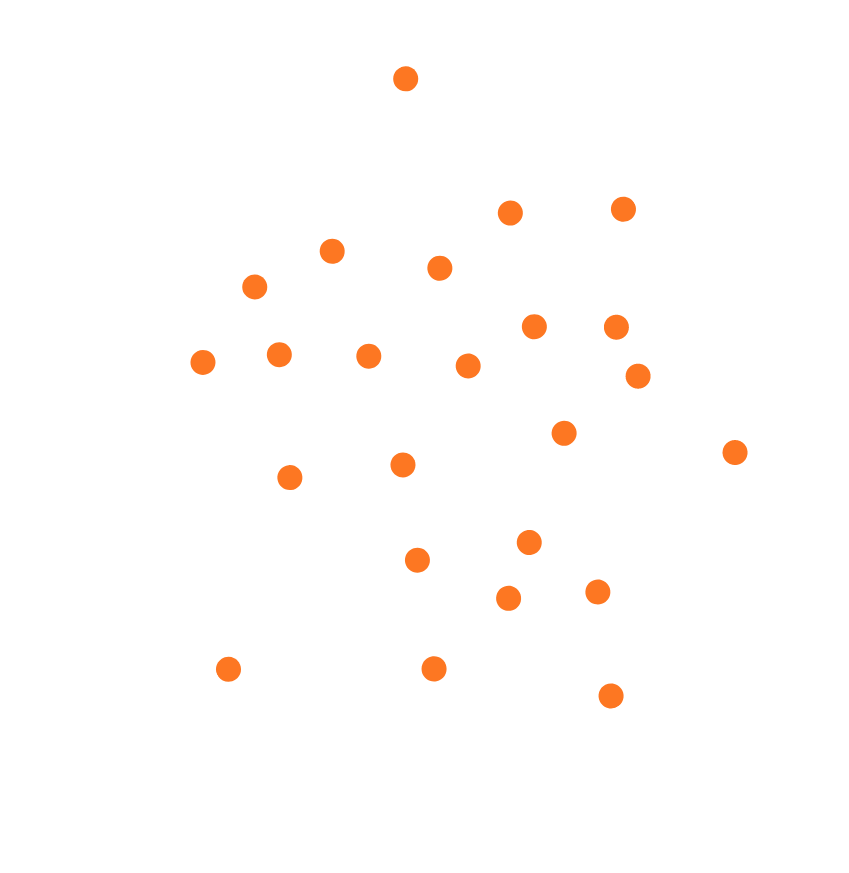
Before
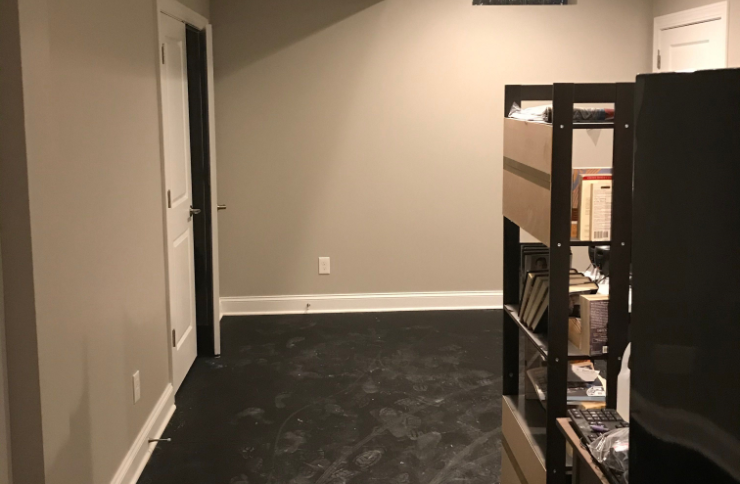
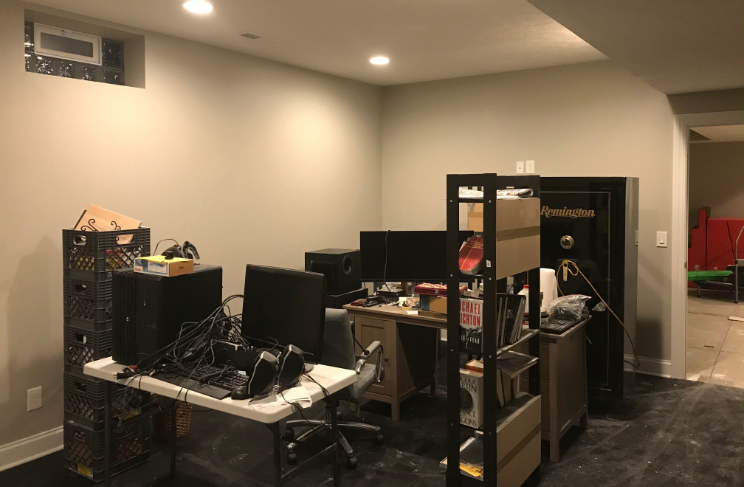
After
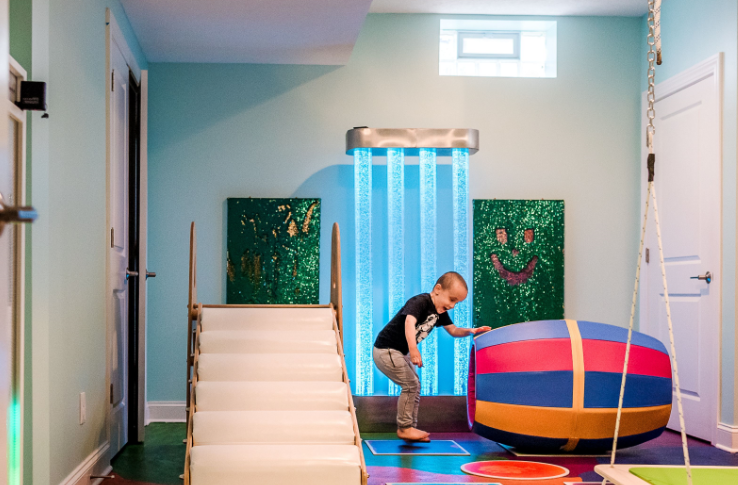
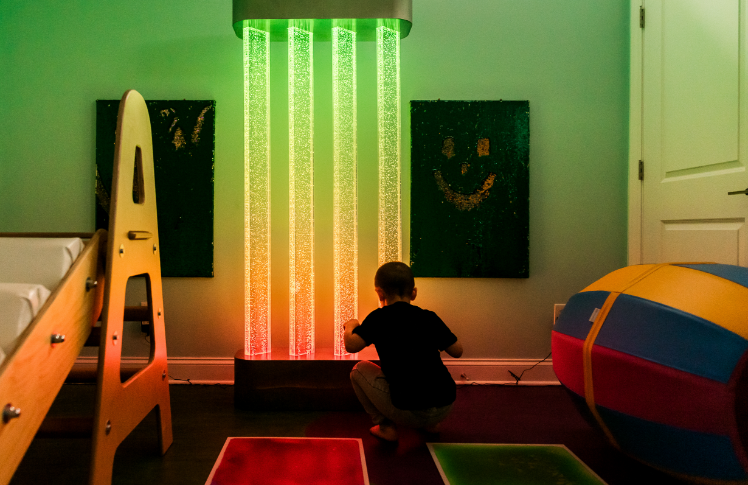
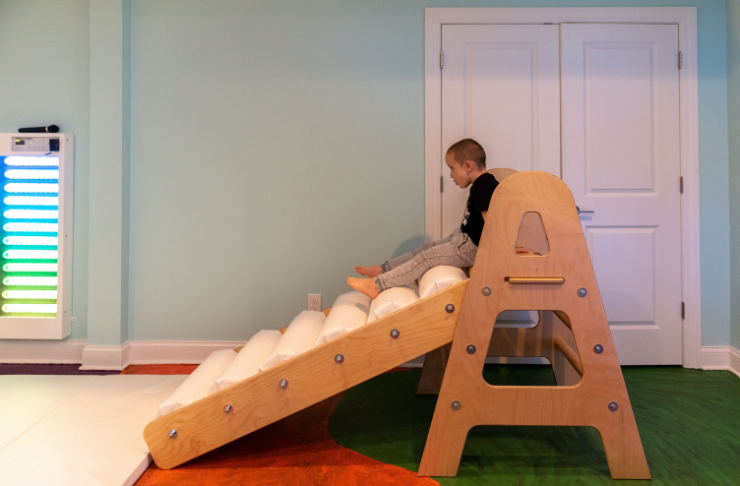
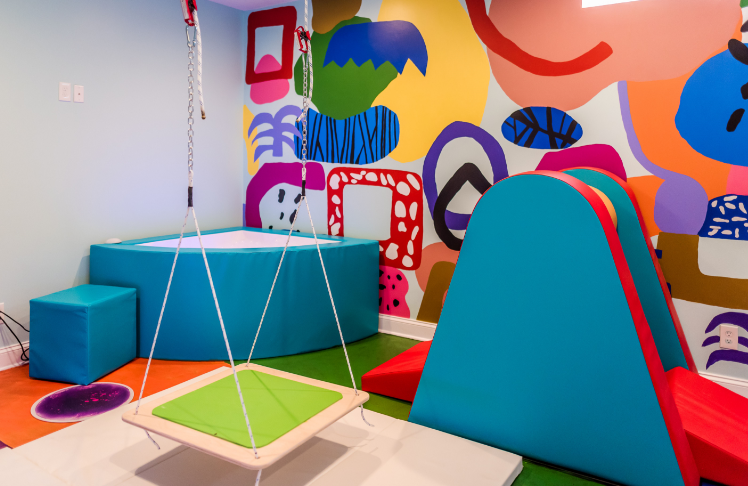
The Process

Step 1: Choosing the Sensory Tools
The Fun and Function Sensory Room Design Team’s first step was to identify products that would be both durable
and versatile, so that the room would stand up to heavy use and provide continued benefit to Noah over time.
The family’s budget allowed for a wide range of engaging sensory tools that appealed to Noah and gave him
the sensory input he needed.


Noah loves downtime, so the Fiber Optic
Infinity Tunnel, Bubble Wall and Sensory
Steplite were chosen to create a relaxing
environment.
The Sensory Steplite is an interactive toy that
would encourage Noah to talk or clap to activate
the lights.

Next, the SensaSoft™ Corner
Vibroacoustic Ball Pit was chosen for its numerous calming components: deep
pressure from the balls, the organizing
effect of the vibration, and the calming
music and changing colors.
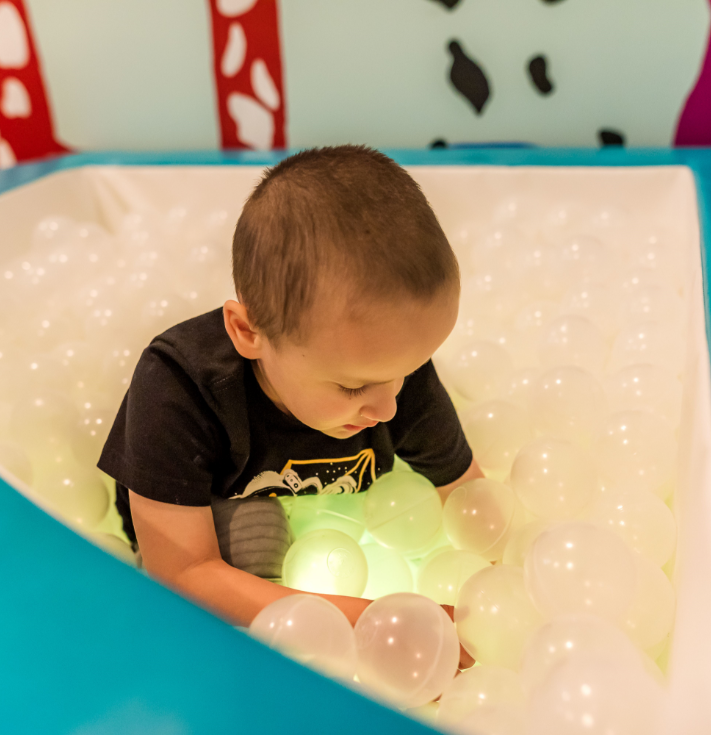
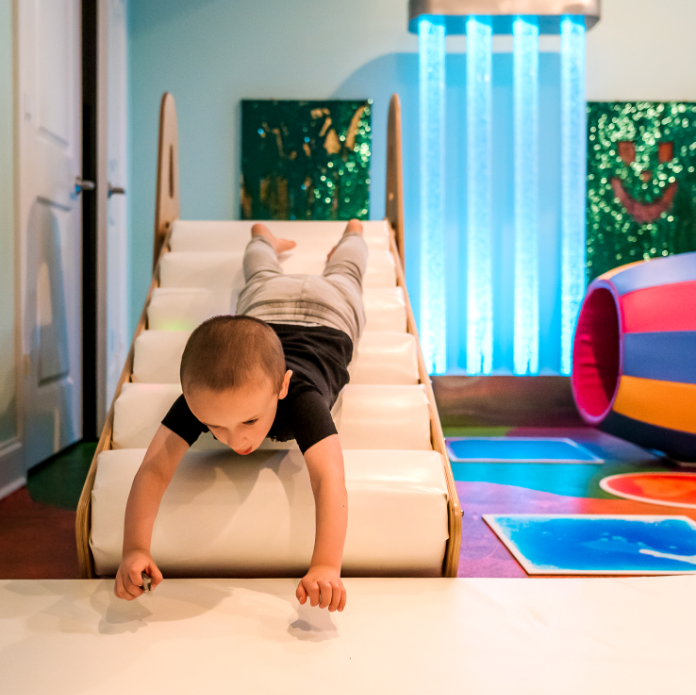

Proprioceptive input and heavy work can be
very powerful for self-regulation and focus.
With this in mind, the team chose tools such as
the Sensory Roller Slide, SensaSoft™ Rollers
and Weighted Disc Blanket.

Finally, the team wanted to include choices
that provided vestibular input as well as
playful opportunities for sensory
modulation and motor planning. To that
end, they chose the SensaSoft™ Play
Barrel and three different swings; the Soft
Taco Swing, the Textured Platform
Swing and Air-Lite Junior Bolster Swing.
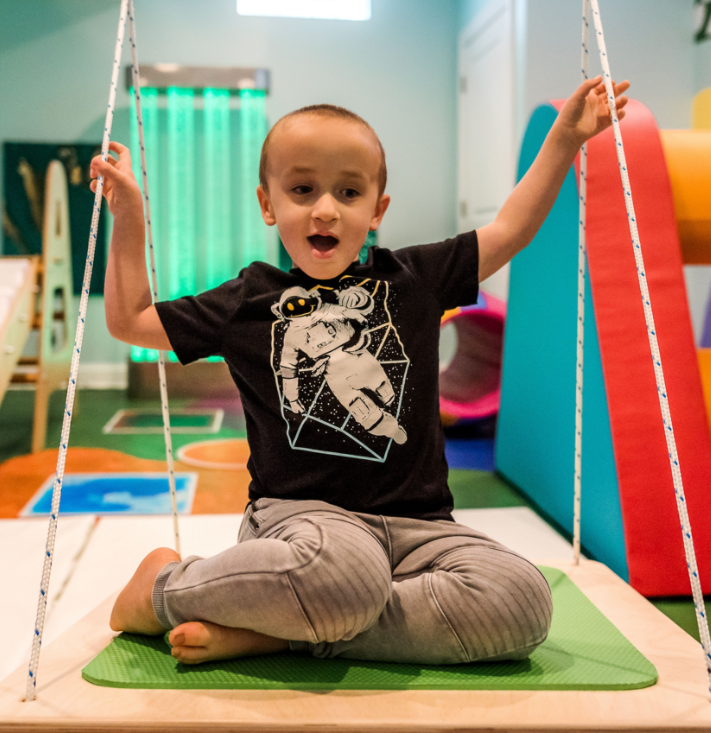

Step 2: Design & Layout
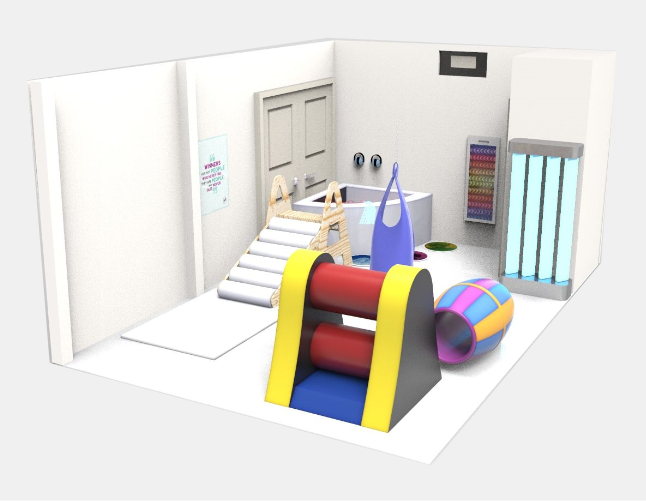
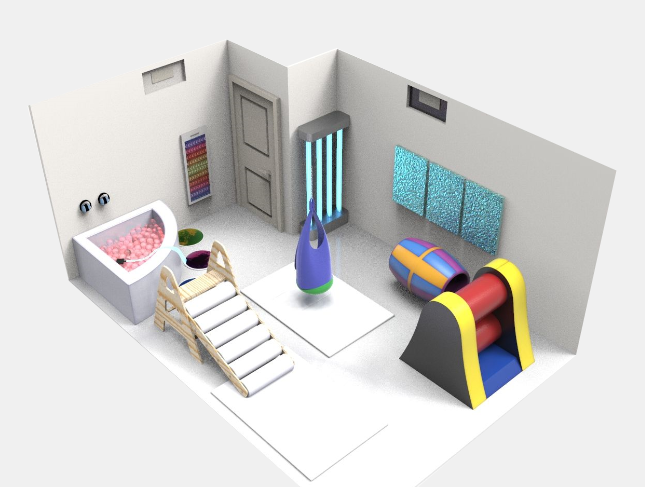
The next step was to decide on the
color scheme of the room since a
sensory space should never look like a
drab therapy clinic! The team decided
on bright, bold colors that are inviting
to kids of all ages and stages. Finally,
the team discussed layout, deciding
where each chosen sensory tool would
be placed, making sure to maximize the
setup and space.

Bold-colored walls of the Rufus’s
new home sensory gym.
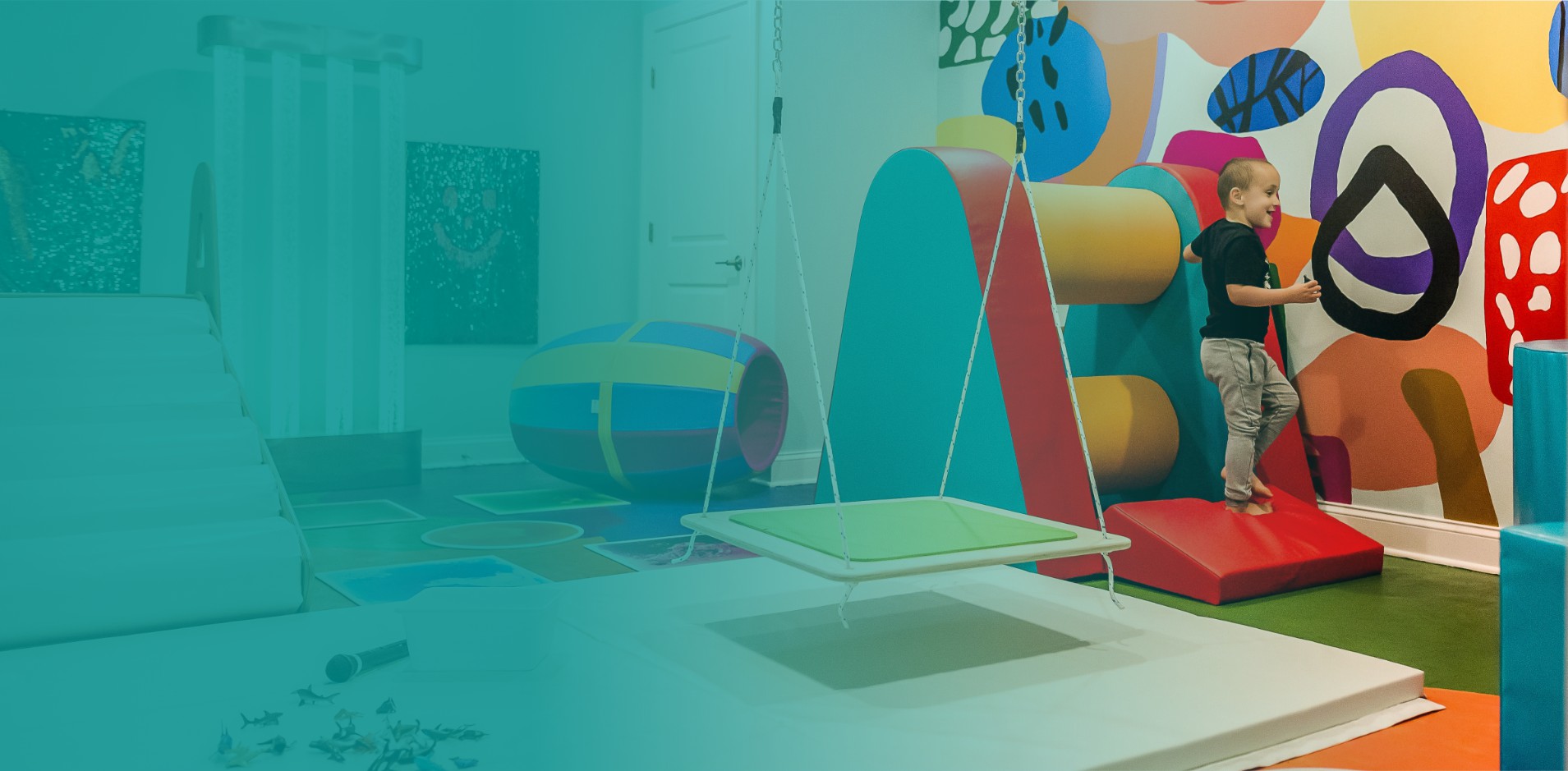
The End Result
The team’s patience and focus on Melissa’s
needs resulted in the incredible and irresistible
sensory space she envisioned. Most
importantly, Melissa says that the Fun and
Function team met the challenge:

"We got institutional standard
quality for our home, so we
know it will last."
Noah playing happily in
his new sensory gym
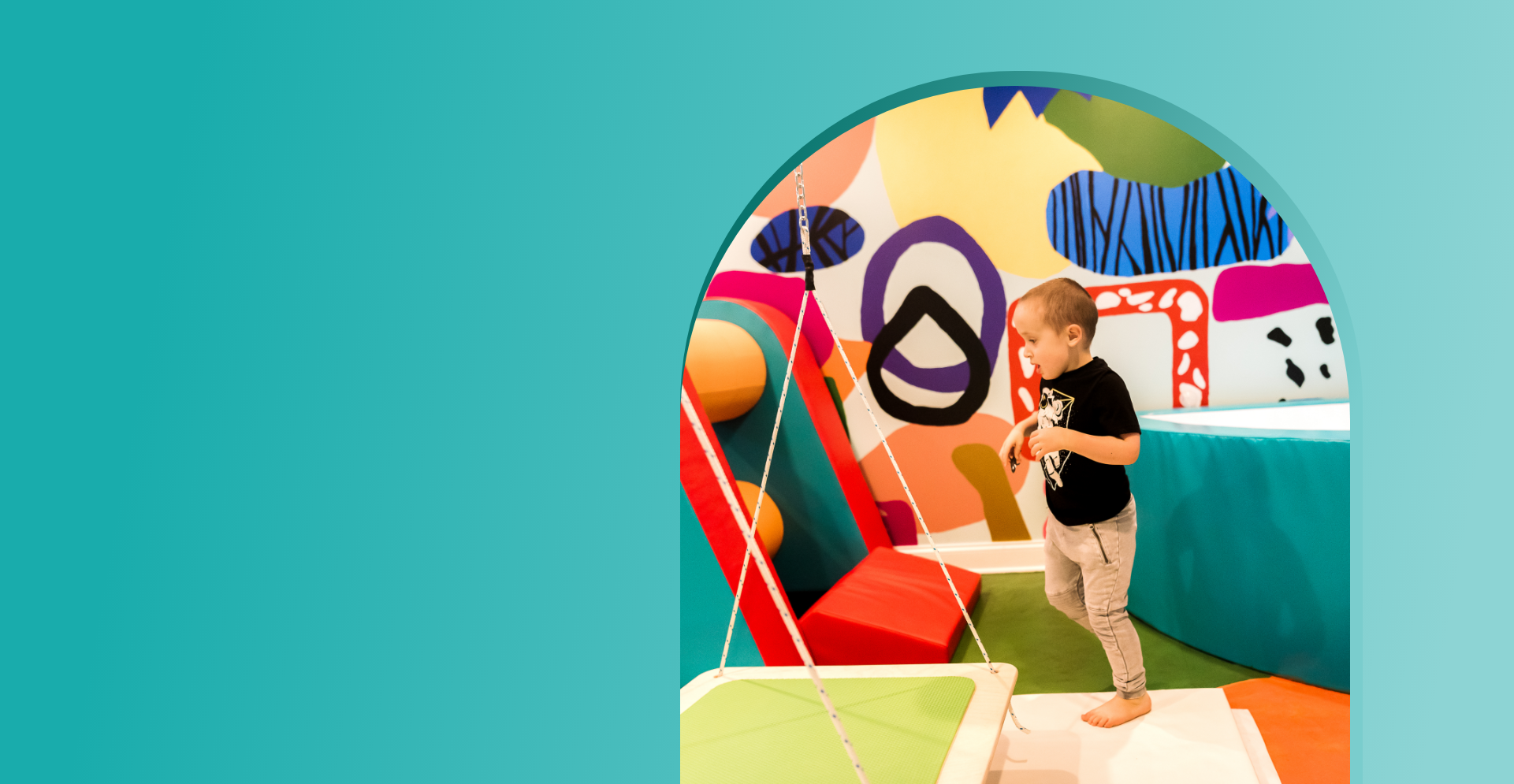
Case Study:
Noah's
Sensory Gym
A home sensory
room -for now
and in the future

The Background
Noah is an adorable 4-year-old boy who
struggles with sensory challenges. His
dedicated mom, Melissa Rufus, came to Fun
and Function with a generous budget of
$20,000 to create a sensory room in their
Ohio home.

The Vision
To transform a basement room into a bright,
friendly and durable sensory space that
would provide Noah with the sensory
stimulation he craved as well as a place to
unwind and regulate himself.

The Challenge
Building a room that would grow with Noah
throughout his childhood development. This
room would need to serve Noah’s needs and
engage him for many years to come.

Before


After




The Process

Step 1: Choosing the Sensory Tools
The Fun and Function Sensory Room Design
Team’s first step was to identify products that
would be both durable and versatile, so that
the room would stand up to heavy use and
provide continued benefit to Noah over time.
The family’s budget allowed for a wide range of
engaging sensory tools that appealed to Noah
and gave him the sensory input he needed.


Noah loves downtime, so the Fiber Optic
Infinity Tunnel, Bubble Wall and Sensory
Steplite were chosen to create a relaxing
environment.
The Sensory Steplite is an interactive toy that
would encourage Noah to talk or clap to
activate the lights.


Next, the SensaSoft™ Corner Vibroacoustic
Ball Pit was chosen for its numerous calming
components: deep pressure from the balls, the
organizing effect of the vibration, and the
calming music and changing colors.
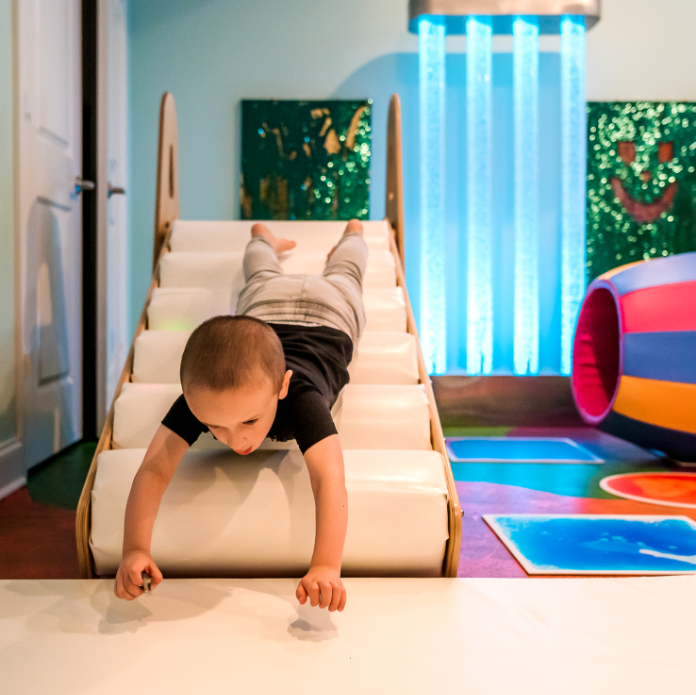

Proprioceptive input and heavy work can be
very powerful for self-regulation and focus.
With this in mind, the team chose tools such as
the Sensory Roller Slide, SensaSoft™ Rollers
and Weighted Disc Blanket.


Finally, the team wanted to include choices that
provided vestibular input as well as playful
opportunities for sensory modulation and
motor planning. To that end, they chose the
SensaSoft™ Play Barrel and three different
swings; the Soft Taco Swing, the Textured
Platform Swing and Air-Lite Junior Bolster
Swing.

Step 2: Design & Layout
The next step was to decide on the color
scheme of the room since a sensory space
should never look like a drab therapy clinic!
The team decided on bright, bold colors that
are inviting to kids of all ages and stages.
Finally, the team discussed layout, deciding
where each chosen sensory tool would be
placed, making sure to maximize the setup
and space.



Bold-colored walls of the Rufus’s new
home sensory gym.
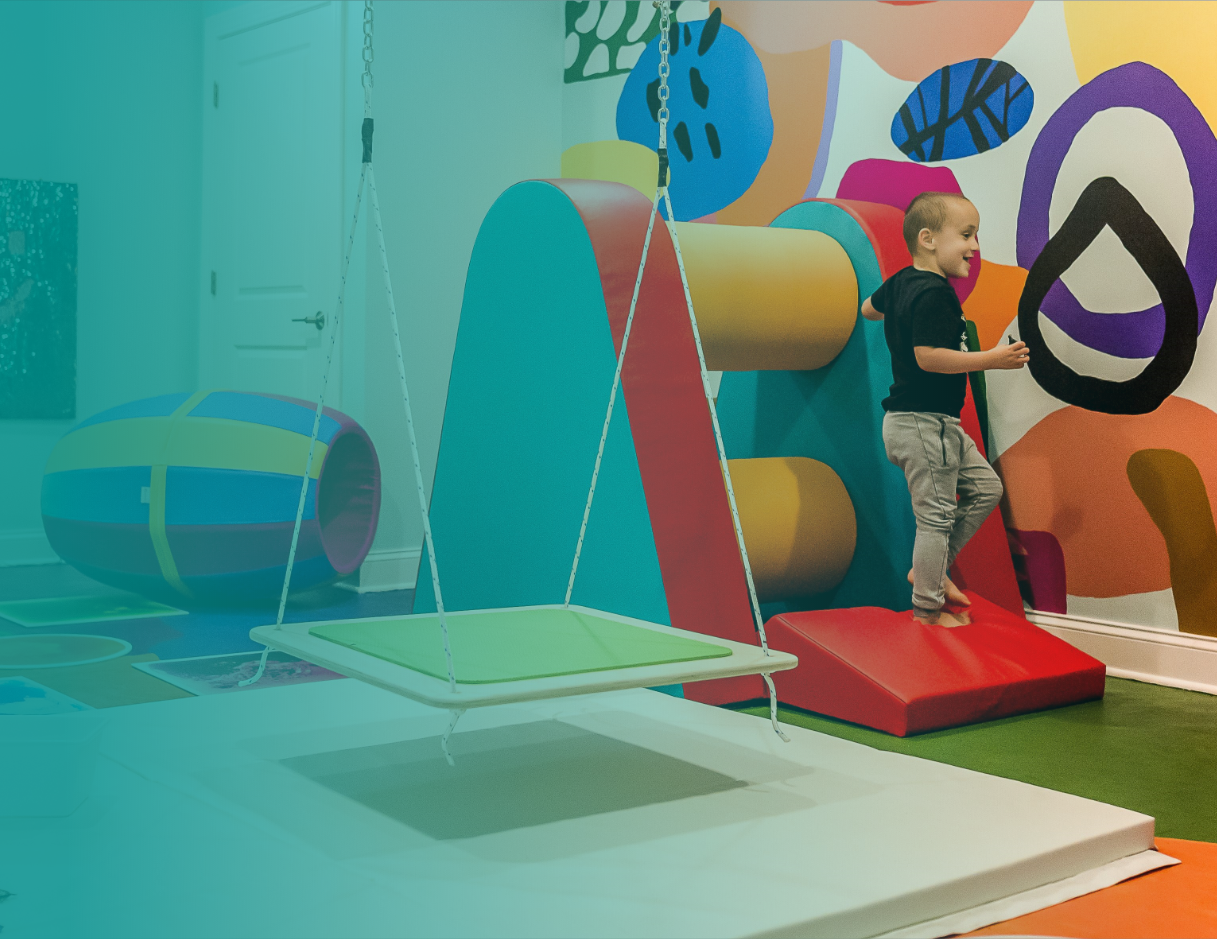
The End Result
The team’s patience and focus on Melissa’s
needs resulted in the incredible and irresistible
sensory space she envisioned. Most
importantly, Melissa says that the Fun and
Function team met the challenge:

"We got institutional standard
quality for our home, so we know it
will last."

